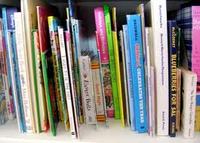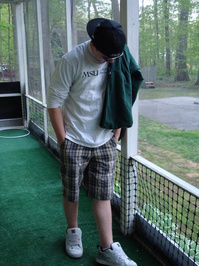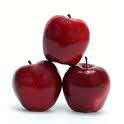A recent study by online fashion gamer
Roiworld released a study this month showing a decline in Facebook usage by teenagers. Out of 600 teens, ages 13-17, one in five have stopped using the social networking giant. The main reason being boredom. That said, I know in my house I have a teen who is one of the other four out of five, who
does use Facebook, and MySpace too. I also have a Facebook account with both personal "friends" and professional "fans" or "likers". The question becomes whether or not it is acceptable to merge both my online social
networking world with that of my teen?
To "friend or not to friend?" That is the question
.
I'm sure the answer hugely depends on the relationship a parent has with their teenager. Some parents want their kids to have a bit of privacy and freedom to be with their peers, others only allow social networking if they are allowed into their child's circle, with total access to their profile. Personally, I decided to do both. I am "friends" with my son on Facebook, where he has also friended many other relatives, but I keep my distance from his MySpace account. I am not naive, I know the language and topics of conversation certainly polar each other between the two sites, but I still see a pretty good sample of how he interacts with the people within his network.
It is possible to be a friend your child, and still not mortify them. Just because you see what they are up to doesn't mean you have to comment on their posts, for all
their friends to see. If you need to send a message, try a private one instead of posting something on their wall. And note, teens are savvy users and can easily hide things from your view with a click of the privacy settings. Again, the relationship you have with your teen will dictate the outcome of communication as much online, as offline.
Some kids really don't care if their parents are in their network. One mom I know was surprised to receive a friend request from her sophomore son. She said to him, "You don't have to do that. I trust you." And he replied, "I don't care mom, I'm friends with everyone else in the family." Turned out
she was the one who felt uncomfortable about it, invading his privacy.
One article in the
Washington Post which was written back when Facebook first went public, quoted a teen who turned on her computer and found a request from her parent. She said, "I feel like they just walked into my room."
Being included within your child's social networking circle in no way replaces the need to monitor what else they are doing online. My kids still have to use the family computer in the dining room, they aren't allowed computers in their rooms. I still know what sites my kids visit, what games they play, etc.
No matter what you decide for your distinctly unique relationship with your child, my advice is this. Sit down and have a real discussion about how your teen feels about a new, online relationship between the two of you. Will it mortify them? Or will it be away to open up about things they find hard to deal with face to face (just make sure you learn how to post privately vs. publicly)? Chances are, you might not see much more within your child's online network, as you already see in their real one.









